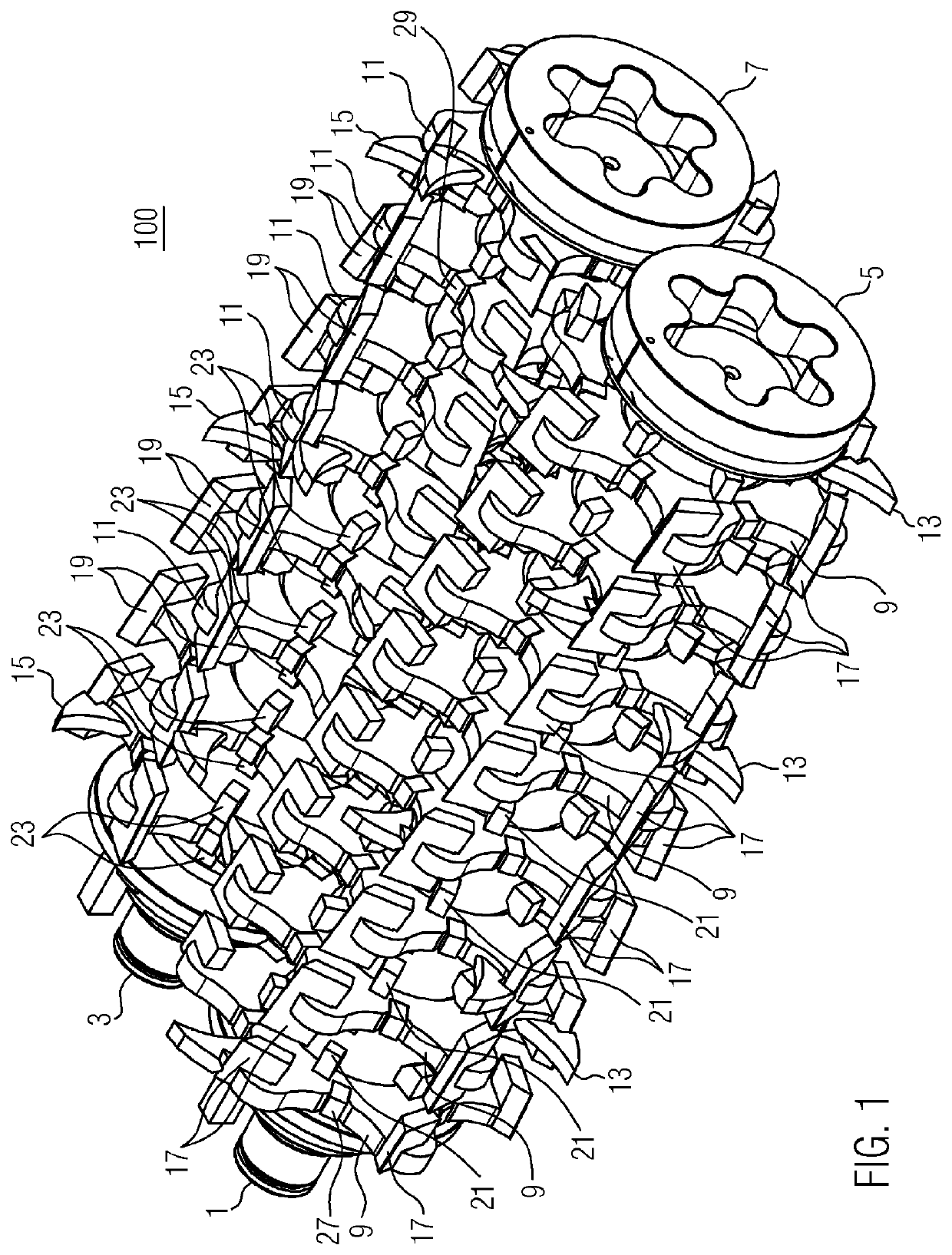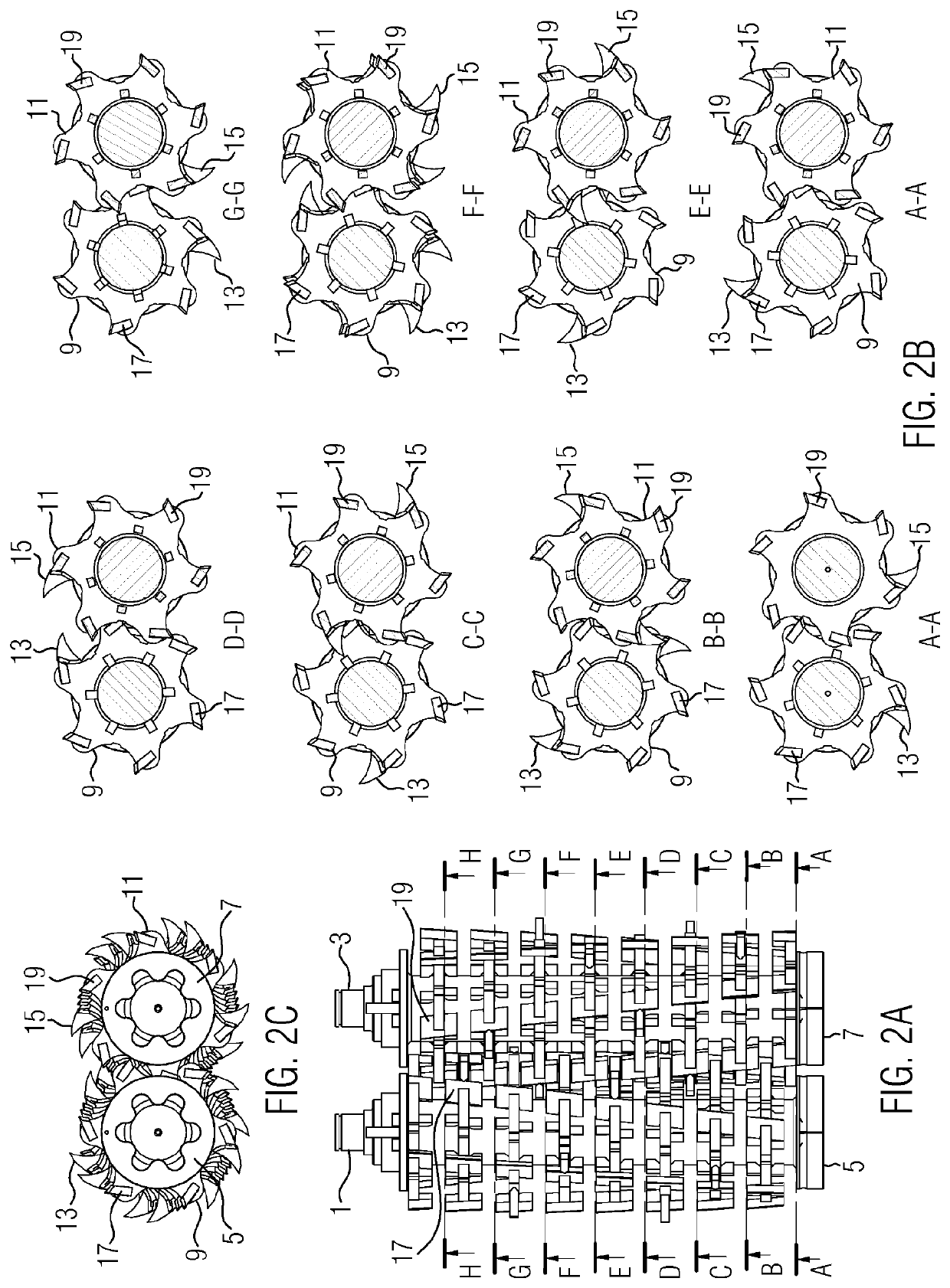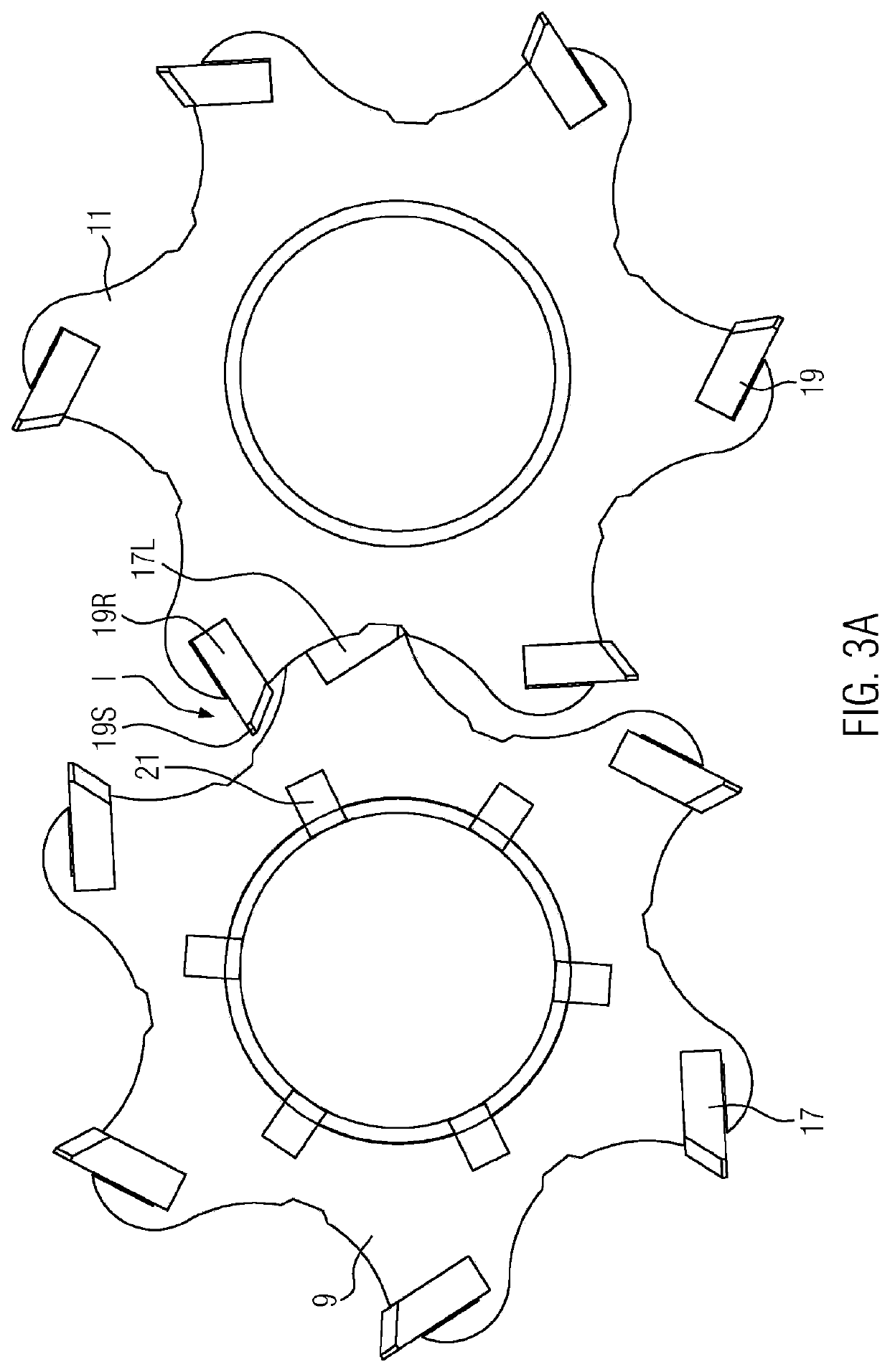Multi-region twin-shaft cutting system
a cutting system and multi-region technology, applied in the field of multi-region twin-shaft cutting system, can solve the problems of high and today inappropriate amount of energy demand/energy expenditure for prior art comminuting, high proportion of unwanted oversize particles in the final product, and complicating the further processing and marketing of comminuted materials, so as to achieve significant more efficient effects
- Summary
- Abstract
- Description
- Claims
- Application Information
AI Technical Summary
Benefits of technology
Problems solved by technology
Method used
Image
Examples
Embodiment Construction
9]FIG. 1 shows a multi-region twin-shaft cutting system 100 according to the present invention. The multi-region twin-shaft cutting system 100 according to FIG. 1 shows two separate shafts 1 and 3 which are surrounded by a cylindrical roll body. It is understood that the shape of the roll body around the shaft can also have a different geometric shape, such as hexagonal or octagonal. Connection elements / couplings 5 and 7 are shown by way of example. The connection element / the coupling 5 for the left shaft 1 and the connection element / the coupling 7 for the right shaft 3 are shown in the illustrated arrangement of the cutting system 100 in FIG. 1. The two shafts 1 and 3 are arranged substantially parallel. The two shafts 1 and 3 are arranged driven in opposite manner. This means for FIG. 1 that the left shaft 1 rotates clockwise. The right shaft 3 accordingly rotates counterclockwise. The two shafts 1 and 3 can move synchronously or asynchronously. The shafts can in particular also r...
PUM
 Login to View More
Login to View More Abstract
Description
Claims
Application Information
 Login to View More
Login to View More - R&D
- Intellectual Property
- Life Sciences
- Materials
- Tech Scout
- Unparalleled Data Quality
- Higher Quality Content
- 60% Fewer Hallucinations
Browse by: Latest US Patents, China's latest patents, Technical Efficacy Thesaurus, Application Domain, Technology Topic, Popular Technical Reports.
© 2025 PatSnap. All rights reserved.Legal|Privacy policy|Modern Slavery Act Transparency Statement|Sitemap|About US| Contact US: help@patsnap.com



